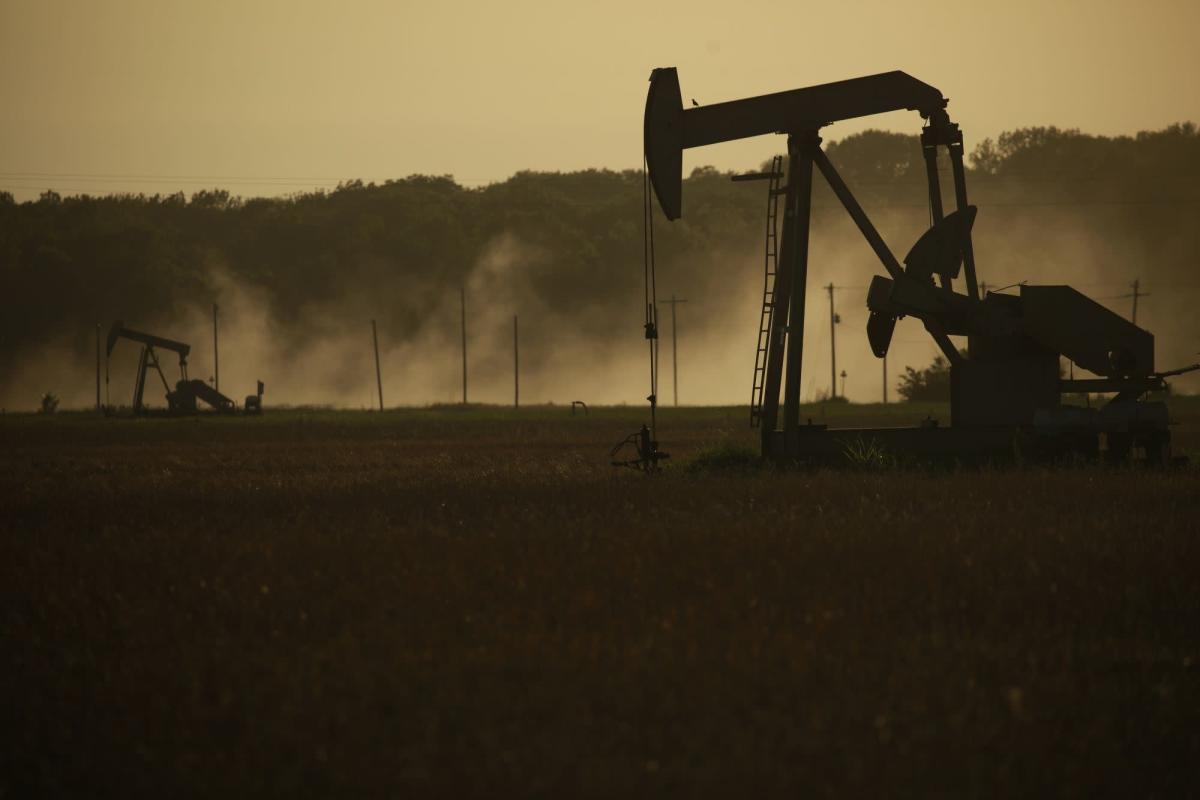
(Bloomberg) — Oil sank as investors weighed escalating concerns that the US may be headed for a recession, while the Biden administration prepared to step up its fight against lofty pump prices by calling for a tax holiday on gasoline.
West Texas Intermediate tumbled toward $104 a barrel, echoing last week’s retreat, with prices falling alongside other raw materials including copper. With investors concerned about the impact of sharply higher US interest rates, Federal Reserve Chair Jerome Powell is due to testify before Congress Wednesday on his bid to curb inflation raging at the fastest pace in decades.
President Joe Biden will call for a gasoline tax holiday, a person familiar with the plan said, after the average US retail price topped $5 a gallon this month following a surge of more than 50% in 2022. The initiative comes ahead of a meeting Thursday between refiners and Energy Secretary Jennifer Granholm.
Oil is headed for a monthly loss as concerns about a broad economic slowdown offset the fallout from the war in Ukraine and signs of still-tight conditions. Supermajor Exxon Mobil Corp. warned this week that crude markets may remain tight for years, while Vitol Group, the world’s largest independent oil trader, flagged rising fuel demand in China. At the same time, soaring margins are offering refineries an incentive to buy every barrel of crude they can get.
“Broader macro influences have been dictating price direction for oil recently,” said Warren Patterson, head of commodities strategy at ING Groep NV in Singapore. “However, fundamentally the market still remains constructive. The oil balance is set to be tight for the remainder of the year, while in the shorter term strong refinery margins should be supportive for crude demand.”
Concerns about a potential US slowdown, which may sap energy demand, have mushroomed in recent days after the Fed hiked rates. Everyone from Tesla Inc. Chief Executive Officer Elon Musk to economist Nouriel Roubini have warned of the growing likelihood that the world’s largest economy will fall into recession.
Reflecting the gathering jitters about the impact of tighter US monetary policy, veteran investor Ray Dalio warned that reducing inflation would only come at great cost. Separately, Former Treasury Secretary Steven Mnuchin said energy prices need to settle down for price gains to be brought under control.
Oil’s slide came together with losses in other commodities, as well as risk assets more broadly. Copper and iron ore both declined, as did equity gauges. An additional headwind for crude prices came from a rising dollar, which makes imports more costly for holders of other currencies.
Still, oil markets remain in backwardation, a bullish pattern that’s marked by near-term prices trading above longer-dated ones. Brent’s prompt spread — the difference between its two nearest contracts — was $2.82 a barrel in backwardation, compared with $2.73 a barrel at the start of this month.
“With commodity demand above supply, markets remain tight even as growth rates slow, as evidenced by the high level of prompt backwardation in key markets like oil,” Goldman Sachs Group Inc. said in a note. “Investors should remember that Fed-induced slowdowns are simply a short-term abatement of the symptom, inflation, and not a cure for the problem, underinvestment.”
©2022 Bloomberg L.P.